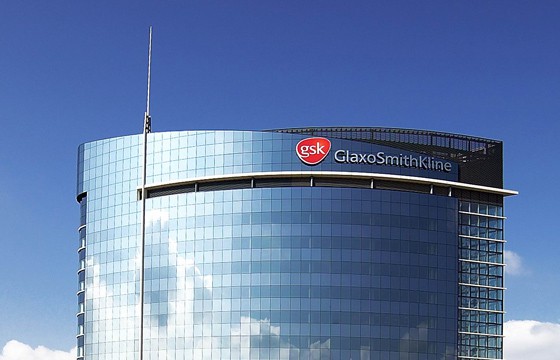
GlaxoSmithKline has unveiled some robust data for its multiple myeloma antibody drug conjugate, and chief scientific officer Dr Hal Barron has pledged a rapid filing with regulators.
GSK2857916 is an anti-B-cell maturation antigen (BCMA) antibody-drug conjugate, and results from the DREAMM-1 first-in-human open label trial showed that 60% of patients achieved an overall response.
The product will be vying for market share against a slew of other pipeline competitors in BCMA- targeting therapies in multiple myeloma including a CAR-T treatment from Celgene and Bluebird Bio and a bispecific antibody from Amgen.
GSK’s trial showed number of patients with relapsing and remitting multiple myeloma achieving a complete response rate hit 15% over an additional one-year following period.
Overall, the median progression-free survival (PFS) was 12 months, an increase from the previously reported 7.9 months, and the median duration of response in the final analysis was 14.3 months.
GSK says the results show efficacy, durability and depth of response, and Hal Barron says the drug could be ready to submit to regulators by the end of 2019.

GSK’s Hal Barron
“These data are very encouraging and I am excited by what they could mean for people living with multiple myeloma,” he said. “We are aggressively advancing this potential new medicine and plan to have pivotal data to support its filing by the end of this year.”
The new data is from just one of many studies of the antibody drug conjugate. Another is DREAMM-2, which looks at multiple myeloma patients who have already been treated with an anti-CD38 antibody, Janssen’s Darzalex.
The BCMA pathway has been shown to be important for myeloma cell growth and survival and BCMA membrane expression is universally detected in myeloma cell lines, making it an attractive target for drug makers.
Celgene and Bluebird’s CAR-T bb2121 is currently seen as the frontrunner in the field, though GSK’s candidate has now produced comparable median PFS.
Celgene and Bluebird released data late last year for their candidate, demonstrating that the CAR-T achieved an 83% objective response rate in 12 heavily pre-treated multiple myeloma patients. A higher dose is also being assessed in the ongoing phase 1 study.
Amgen also has a candidate in the same class treating multiple myeloma – AMG420. That drug achieved an objective response in seven of 10 patients (70%) at the optimal dose tested (400µg/day), including four complete responses with no evidence of minimal residual disease (MRD), and three complete responses with MRD, with six patients still responding up to 7.5 months.




